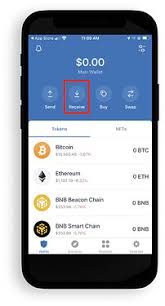
Trust Wallet is owned by Binance, which acquired it in 2018 to enhance its ecosystem and provide secure wallet services.
History of Trust Wallet Ownership
When Was Trust Wallet Founded?
Trust Wallet was founded in 2017 by Viktor Radchenko to offer a secure, non-custodial wallet supporting various cryptocurrencies.
-
Launch: 2017
-
Purpose: Secure storage with user-controlled private keys
How Did Binance Acquire Trust Wallet?
Binance acquired Trust Wallet in 2018 to enhance its ecosystem and improve security features for users.
-
Acquisition Year: 2018
-
Reason: To integrate Trust Wallet’s features with Binance’s platform
-
Impact: Trust Wallet remains independent while benefiting from Binance’s resources.
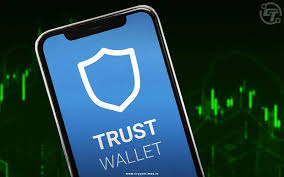
Binance and Trust Wallet Acquisition
Why Did Binance Acquire Trust Wallet?
Binance acquired Trust Wallet in 2018 to strengthen its ecosystem and enhance the security and usability of its platform.
-
Enhanced Security: To offer users a secure, non-custodial wallet option.
-
Expansion of Services: To expand Binance’s services beyond the exchange by integrating wallet functionality.
-
User Control: To provide users with more control over their private keys.
How Has Binance Impacted Trust Wallet?
Binance’s acquisition has provided Trust Wallet with additional resources and global reach, while maintaining its independent operation.
-
Resource Support: Binance provided financial and technological resources to improve Trust Wallet.
-
Global Reach: Trust Wallet gained broader adoption through Binance’s global presence.
-
Independent Operation: Trust Wallet continued to operate independently while integrating Binance’s support and innovation.

Trust Wallet’s Development Under Binance
What Changes Happened After Binance Acquired Trust Wallet?
After Binance acquired Trust Wallet in 2018, several changes helped improve the wallet’s features and expand its user base:
-
Integration with Binance Ecosystem: Trust Wallet integrated more closely with Binance, offering easier access to Binance’s services.
-
Increased Cryptocurrency Support: Trust Wallet expanded to support a wider range of cryptocurrencies and tokens beyond just Ethereum-based assets.
-
Improved Security: Enhanced security features, including better encryption and more frequent updates, were introduced.
How Has Trust Wallet Grown Since the Acquisition?
Since the acquisition, Trust Wallet has experienced significant growth in both features and user adoption:
-
User Base Growth: Trust Wallet’s user base expanded rapidly as it became one of the most popular wallets in the crypto space.
-
Feature Enhancements: Additional features like staking, DApp browser, and decentralized exchange (DEX) support were added.
-
Continual Improvement: Trust Wallet has continuously evolved with regular updates, supporting new cryptocurrencies, and adding privacy-preserving features.
Trust Wallet’s Independent Operation
Does Trust Wallet Operate Independently from Binance?
Yes, Trust Wallet operates independently from Binance despite being acquired by the exchange in 2018. It maintains its own development team and decision-making process.
-
Operational Independence: Trust Wallet continues to function as a non-custodial wallet with no direct control over by Binance’s day-to-day operations.
-
Focus on User-Centric Features: Trust Wallet’s primary focus remains on providing a secure, user-friendly experience for crypto storage and management.
How Much Control Does Binance Have Over Trust Wallet?
While Binance supports Trust Wallet with resources, it does not interfere with its daily operations or development.
-
Limited Influence: Binance provides financial and technical support but does not manage Trust Wallet’s feature development.
-
Independent Development: Trust Wallet continues to develop and update its features without direct oversight from Binance.
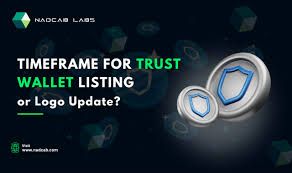
Trust Wallet’s Leadership Team
Who Are the Key People Behind Trust Wallet?
-
Viktor Radchenko: Founder, now a mentor after stepping down as CEO in 2022.
-
Eowyn Chen: CEO since 2022, formerly VP of Marketing at Binance.
-
David Kim: Tech Lead, responsible for the SWIFT Wallet development.
-
Roman: Staff Engineer leading the Wallet Core team.
-
Jonathan: Customer Support Representative leading service improvements.
How Is Trust Wallet’s Development Managed?
Trust Wallet’s development is managed through a decentralized, collaborative approach:
-
Flat Leadership Structure: Empowering team members to lead initiatives.
-
Cross-Functional Collaboration: Engineers, product managers, and support work together.
-
Community Engagement: Involving users in decisions through Trust Wallet Token (TWT).
-
Continuous Updates: Regular releases based on feedback and technological advancements.
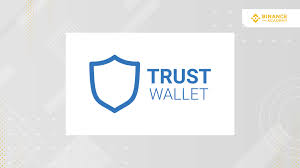
Trust Wallet and Its Community
How Does Trust Wallet Engage with Its Users?
Trust Wallet actively engages with its users through multiple channels to maintain a strong relationship and improve the wallet’s features:
-
Social Media: Trust Wallet uses platforms like Twitter, Reddit, and Telegram to communicate with users and share updates.
-
Feedback Systems: They encourage users to provide feedback directly through surveys and support channels.
-
Educational Content: Trust Wallet provides guides and tutorials to help users understand the app and cryptocurrency.
What Role Does the Community Play in Trust Wallet’s Success?
The community plays a crucial role in Trust Wallet’s growth and continuous improvement:
-
Feedback and Suggestions: User feedback helps shape new features and improvements.
-
Bug Reporting: Users report bugs and issues, enabling faster fixes.
-
Marketing and Advocacy: The community acts as brand advocates, sharing Trust Wallet’s benefits with others and contributing to its growing popularity.
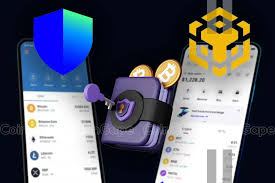
Future of Trust Wallet Under Binance
What Are the Future Plans for Trust Wallet?
Trust Wallet aims to enhance user experience and expand Web3 capabilities:
-
Binance Connect: Seamless fiat-to-crypto transactions.
-
Airdrops and Rewards: Engaging users through promotions.
-
Cross-Chain Support: Adding compatibility with more blockchain networks.
How Will Binance Influence Trust Wallet’s Development Going Forward?
Binance will continue to support Trust Wallet’s development through:
-
Infrastructure Support: Strengthening wallet performance.
-
Ecosystem Integration: Ensuring smooth interaction with Binance platforms.
-
Regulatory Guidance: Helping with global compliance and accessibility.
When did Binance acquire Trust Wallet?
Binance acquired Trust Wallet in 2018 to enhance its platform and provide users with a secure, non-custodial wallet.
Does Binance control Trust Wallet’s operations?
While Binance owns Trust Wallet, it operates independently, with its own development team and decision-making process.
Does Trust Wallet remain independent after the acquisition?
Yes, Trust Wallet continues to function independently, focusing on user control and decentralized storage of crypto assets.
Leave a Reply